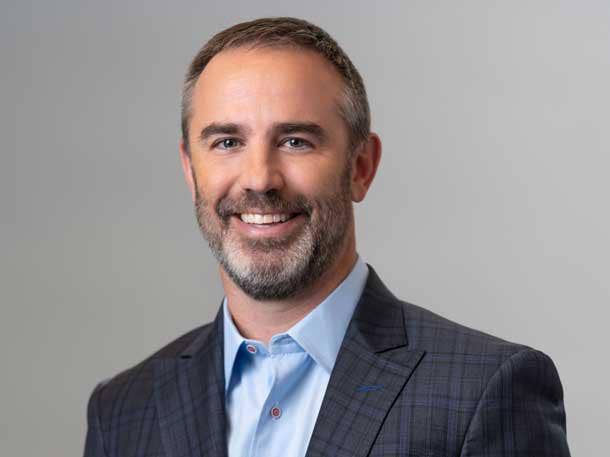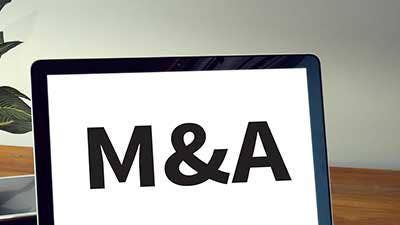Park Place Technologies CEO: 8 Biggest Investments For 2021
From new as-a-service offerings to edge computing opportunities, Park Place Technologies CEO Chris Adams explains his company’s eight biggest investments and market trends that will shape 2021.

Park Place CEO Chris Adams Unveils His Bets For 2021
Fresh off Park Place Technologies’ blockbuster acquisition of Curvature, which will double the company’s revenue size and headcount, Chris Adams tells CRN his bold investment plans in store for 2021 to take Park Place to the next level.
“Change is who we are as a company and change really is the industry because now there’s this senior, credible competitor to the OEMs,” said Chris Adams, CEO of Cleveland, Ohio.-based Park Place Technologies, one of the top market leaders in hardware maintenance in the world. “We’re pretty excited about that and continuing to investment in all these innovations. I think they’re going to change our industry for the good.”
Park Place has been expanding into new market segments via acquisitions over the past several years, while at the same time expanding on its core maintenance, monitoring and management capabilities.
From new as-a-service offerings to virtual machine (VM) monitoring, Adams breaks down Park Place’s eight biggest technology investment plans and boldest predictions for 2021.

New Capacity As-A-Service Offering
In 2021, we’re going to be launching capacity as-a-service. This is a big ask right now from customers. Customers want to optimize their gear, and capacity is the way you do that or one of the methods you use. When looking at your storage as a whole and seeing how utilized it -- the same thing with networking or same thing with CPU utilization across a complete node or a group of servers – capacity as-a-service can solve optimization challenges.
We’ll be offering that next year. That’s the next stage in our product roadmap for our DMSO [discover, monitoring, support and optimize] offering. We think the customers are going to buy that because they’ve been asking for that for a long time.

Edge Computing Monitoring
The edge has been in our roadmap. … On the monitoring side, there’s an opportunity for us because those locations are often unmanned. So offering our monitoring solutions into edge environments will create a big opportunity for us in the next few years. We are in the process of evaluating that.
We’ve been talking about the edge for about a year. It’s a new concept. I think it’s still basically servers and storage arrays, but the idea that you have your IT way out in the cloud or on-premise -- the edge is kind of in the middle. It’s not necessarily on-premise, but it’s not all the way out to the cloud. It’s closer wherever you need to compute and then the latency issues become less of a concern. That definitely will be a growth opportunity for us moving forward.

Lack Of Hardware Purchasing To Pick Back Up
[The] COVID-19 [pandemic] has slowed down hardware purchases for customers. But I believe that will pass over time. That’s a temporary thing. Particularly now with the announcements about vaccines coming out. That is good news for the global economy and a lot of these businesses. There’s light at the end of the tunnel.
If people can just figure out how they can keep their business going until that point, I think then they can turn the corner and that changes the dynamics you see right now with slowing down of capital investments in hardware. So we’re looking forward to that next year.

New OS And VM Monitoring For Cloud And On-Premise
We have a roadmap for DMSO. There are several service offerings over the next few years that we’re going to be continuing adding to the service offering and product set. This year, we went into the year with post warranty maintenance monitoring. During this year, we added in-warranty monitoring so now we’ll provide monitoring for the entire install base the customer has and not just post warranty. In August, we launched Discovery as-a-service, so now we can do automated discover. We’ll soon be launching OS and VM (virtual machine) monitoring for customers. So we monitor the hardware today, but we’re going to add the operating systems and the VMs – and not just the VMs sitting on the hardware in the customer’s data center, but also their VMs in the cloud. We’re going to give them one, single pane glass view to see all of that stuff.

Possible MSP Or Software Acquisition Outside Maintenance
I see us doing more [acquisitions] outside of the maintenance space over time. We have done a few of things over the years like Entuity, which was a software application that was outside of our core business. We also bought a firm called IntelliNet which was a manage service provider. We’re using that as a foundation to provide a lot of the services that we’re now offering. For example, our upcoming OS and VM, the backbone from that offering is coming from IntelliNet. The talent and skills is coming out of that acquisition. The same with some of the network support we’re offering. We took the Entuity software application, our ParkView infrastructure, and the IntelliNet technical capabilities and we combined that into one NOC offering through our enterprise operations center that here in Cleveland.
So yeah, I see us adding depth in some of the other portfolio services through acquisitions like we did with Entuity.

New Hires For DMSO: ‘That’s The Future’
We’ll be adding talent depth in the discover, monitor, support and optimize (DMSO) stack – that portfolio of services that we offer. That’s the future. Our bets are that if you do maintenance tomorrow like you’ve done it the last 20 years, the customer is going to lose interest.
From the customer standpoint, it used to be about making sure you could provide the support when they needed you. They would call you when they needed you. But now, that customer is changing and the demographics of it. The person now is the same person whose car notifies the dealer when the filter needs to be changed -- it’s connected. When they get to work, if their Dell EMC array isn’t notifying us, they’re going to be disappointed, they would expect that out of us. We’re making sure we’re investing in future proofing our business with this DMSO offering. That’s where we think our clients are going to be taking us in the next ten years.

Cloud More Expensive Than Park Place As-A-Service
We’re a subscription service that’s an alternative to the OEM and the capital investments. We’re laying on slowly to our service offerings so it’s not painful for our customers. When a business goes from a full Capex to a full Opex, like if you’re going to move from on-premise to the cloud – that line item in your P&L is huge. That’s a tough pill to swallow. Typically, what clients see when they move to the cloud is, whatever you’ve scoped out, it’s more expensive. All the nickel and diming that happens every time you pick up the phone, that’s not usually factored in well to these models. That’s a big jump, but for us, you’re already on a maintenance program.
For example, if we’re maintaining your Dell servers for $15 a month and we say for another $10 per month, we’ll monitor those for you – that’s not a huge change for the customer. We’ve been cognizant for that for years. The as-a-service approach has been our model for years and it’s worked very well from us. We try not to shock the system for customers and gradually add things they can add -- that’s our business model and it’s been working well. They’ve been adding the monitoring to the maintenance, there’s a lot of interest for discovery which is another as-a-service. Our [upcoming] OS and VM offering is the same thing. It just layers on top of the hardware we’re already monitoring for a monthly charge. As-a-service is built into our core business model today.

COVID-19 Remote Work Impact: ‘It Will Change Us For Sure’
The bigger change next year as it relates to COVID-19 is more around how people have now been working remotely for a while. That will change the work dynamics once we come back to whatever normal is. It will change the expectations of the employees. Businesses will have to adapt.
I personally, always feel like people are better in groups in-person. They solve problems better. It creates culture. But I think, given some of the flexibility that remote work has created, there’s probably going to be an expectation of [being able to work remotely]. It will change us for sure. It will change business in general, maybe it already has. Whether that is for the good or not, I guess we’ll figure that out over time, but it’s going to change us for sure.